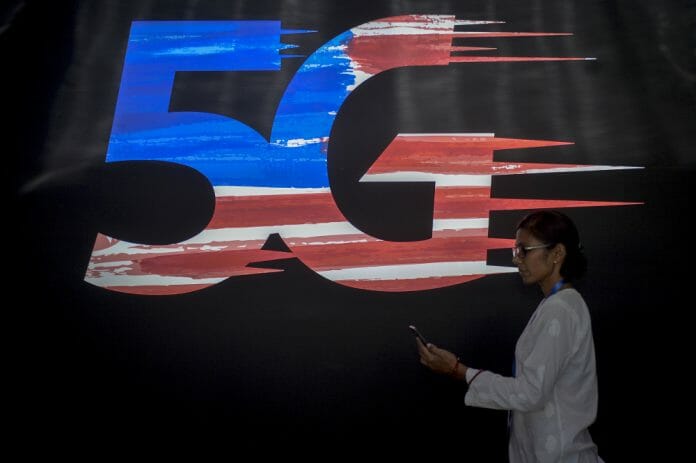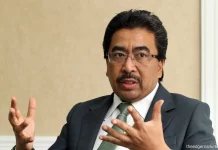Malaysia is at a crossroads, (yet again) does the nation move forward with a Single Wholesale Network or Double Wholesale Network in terms of 5G adoption. Yes, a contentious argument that has rocked the nation for the past 2 months.
Whichever model the ‘Powers That Be’ decide, will be late coming as the country is already a laggard in its digital aspiration and could dangerously lose out to regional peers in terms of FDI attraction. Large corporations have added connectivity as one of their top criteria when deciding to set up a business and in investing.
According to EMIR Research, the question to proceed with the Single Wholesale Network (SWN) or Dual Wholesale Network (DWN) is a wrongly formulated question because both options they say will lead to identical inimical impact to the Malaysia telecom industry and the nation as a whole.
As emphasised, a healthy telecom industry ecosystem is one of the critical pillars of the fourth industrial revolution (4IR) and beyond. So, the real danger of making the wrong decision now is not in potentially losing billions of Malaysian Ringgit but a destroyed ecosystem with long-term consequences for the nation.
Therefore, Emir argues the correctly formulated policy-decision making right now should aim at identifying an alternative 5G rollout model that would sufficiently disrupt the telecom industry’s “status quo” to unlock the desired effects such as greater network quality and a more even network coverage nationwide, without the heavy expense of adversely affecting the telecom industry development as a whole.
Bearing in mind that SWN and DWN are both detrimental to the nation as both models lead to a highly undesirable monopolistic effect on the telecom industry leading to low competition and, as a result, low innovation and quality of the internet—this is the axiom of strategic management. And the global data proves this once again.
The unanimously mediocre, at best, performance in terms of network quality and nationwide penetration by all the countries that adopted SWN-model (government-led or MNO consortium-led alike) for their 4G rollout is glaring in comparison with the nations who did not—these are outcomes. If we analyse deeper, the same countries who pursued SWN for 4G are among those unable to flex their 4IR muscles until now—these are the long-term national impacts.
Here’s another option, DNB should become the neutral entity that will solely focus on actively expanding passive network infrastructure—fibre, backhaul, and towers/poles only (for 5G, it will be even more massive than what 4G requires). Note that while the lack of passive network infrastructure, especially in the underserved rural areas (and this is the primary reason they are underserved), is at the core of Malaysia’s internet problem, the DNB proposition, in its current form, does not address it at all.
Furthermore, as far as financing is concerned, the Universal Service Provision (USP) fund should be continuously geared towards solving this problem.
This government-built and government-owned passive network infrastructure are to be shared equally by all the telecom players while sharing active radio access network (RAN) equipment are optional.
Here we must understand that spectrum sharing is identical to active RAN sharing (one is not possible without another) and therefore is a matter that requires very careful consideration.
On one side, spectrum sharing helps overcome the limited availability of bands suitable for 5G and boosts resulting maximum internet speed. However, on the other hand, it would necessarily result in active RAN sharing and, therefore, a lack of competition based on quality.
One option for an MNO is to have a full spectrum in designated areas, and domestic roaming should be allowed. If the MNO is not performing in the designated area, it should be penalised. There should be wholesale pricing between all the MNOs, and the areas can be selected through bidding. As a compromise, there could be two or three MNOs per area to promote competition, but the spectrum divided by two or three is better than dividing by five or eight.
However, we should also consider the global experience in rolling out the 5G network where a majority of the countries proceeded with an early spectrum auction. Furthermore, if even the countries with a limited 5G spectrum availability prefer to do the spectrum conversion and free up the suitable spectrum bands to be still able to proceed with the auction or beauty contest option, there must be some collective wisdom that we may want to consult.
That is because ideally, the active RAN equipment should be left to be deployed by the individual telecom players to unleash the following mutually reinforcing dynamic that will keep the telecom industry agile: 1) innovation; 2) competition based on the primary characteristic—the quality of network and thus constantly raising the industry quality bar; 3) dynamic cost reduction of the overall network deployment while gradually and timely paving the way to the future generation networks.
As far as international investors are concerned, due to the quality of its public administration recently, in the eyes of investors, Malaysia has been establishing itself consistently and firmly only in one space — space of misplaced solutions missed opportunities, and “negative wisdom” when it comes to faithful strategic decisions. Now, the 5G rollout, according to the current DNB proposition, if not restructured urgently, is going to be yet another important “negative milestone” to a direly needed correct trajectory.
We should pay attention to the Brunei case, which is rather unique and interesting and is also quoted by DNB in support of its arguments but clearly out of context.
The CEO of Brunei’s Unified National Networks (UNN) specifically emphasised their demand-driven focus (on 4G and below) to recover the investments while organically preparing the platform for the future (5G) The country also is benefiting due to its geography and small population size (below 500,000 citizens!). In addition, and notably, UNN has significantly expanded passive network infrastructure upon the concession of the network from MNOs to the government-owned entity.
Meanwhile, if we choose the right 5G rollout strategy, there will be (literally) the whole world of investors who will incorporate this “positively wise” decision into their future evaluations of our country’s capacity.
Dr Rais Hussin, the CEO of EMIR Research, an independent think tank focused on strategic policy recommendations based on rigorous research.









